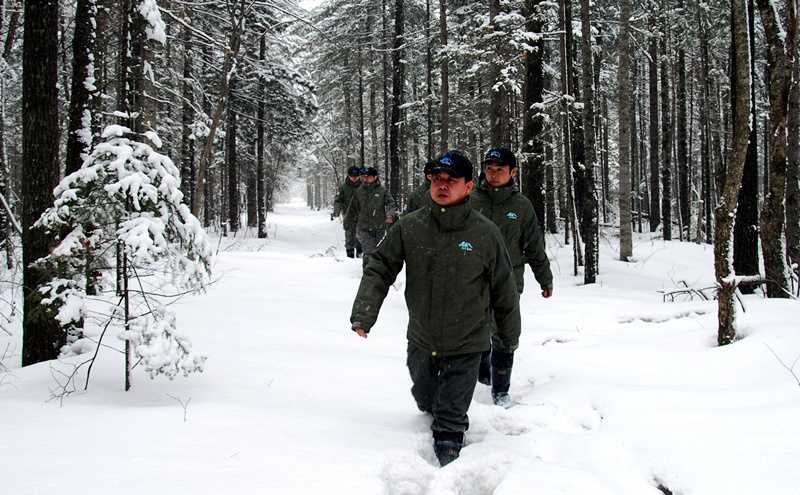Rangers' uphill battle to save mountain wildlife
Patrol teams trek through deep snow to ensure animals get enough food to survive the tough northern winter.
As people across Northeast China were celebrating Spring Festival and preparing to welcome warmer days, life was still hard for wild animals in the Changbai Mountains National Nature Reserve.

In winter, they have to scratch around the frozen ground to find enough food to survive.
The reserve, in Jilin province, consists of about 86 percent forest and is home to more than 1,500 wild species, such as roe and red deer, black bears and yellow-throated martens, according to the local forestry department.
To provide the necessary sustenance for these animals, forest rangers trek across the rugged terrain every day during winter, carrying corn up the mountain.
The temperature on the slopes had dropped as low as -20 C as a result of two heavy snowfalls. Frost covered the rangers' eyelashes, faces and hats as they waded through knee-and even waist-high snow. They walked in a line so the leader could carve a path through the thick snow for those that followed, but some stumbles were unavoidable.
Xu Guihua, the 39-year-old leader of a six-strong team of rangers, said the animals must not be forgotten, even though people were celebrating Spring Festival.
As in previous years, Xu and the other members of his team remained at their posts when most people were enjoying family reunions during China's most important holiday. They huddled together in a 50-square-meter hut at the foot of the mountain, which saved them an hourlong drive from the town, to better protect the animals and plants.
"We cannot take off and leave the forest and its creatures unattended. Instead, we brought our wives and children to celebrate Spring Festival here in the mountains," Xu said.
Each ranger usually carries 25 kilograms of corn during every daily 10-kilometer trek. However, this time they carried more to help the animals through the spell of bad weather.
The weather meant they were only able to take short breaks because the cold wind would enter their sweat-soaked clothes and freeze them to the bones.
"It's boring and hard work on the way, but when we arrive at the feeding spots, there are always a few surprises," Xu said, noting the high number of animal tracks around the wooden feeding shelves that resemble a small pavilion.
"There are so many paw and hoofprints in the snow. Wild pigs and deer must have visited yesterday. We put out 500 kg of corn at each of our two feeding points. We are always pleased to see that all the food has been eaten overnight," Xu said.

